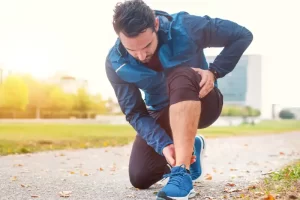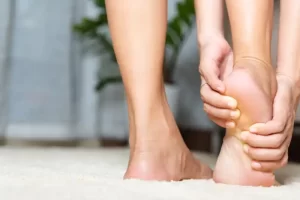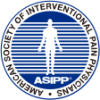Living with degenerative disc disease (DDD) doesn’t mean giving up an active and fulfilling lifestyle. In fact, it can be the opposite. At Ponte Vedra Spine & Pain, our goal is to empower patients with DDD with the knowledge and strategies to successfully navigate the challenges of this particular issue. We focus on non-surgical methods, making lifestyle changes, incorporating safe exercises like degenerative disc exercises, adopting ergonomic practices, the judicious use injections, and exploring alternative therapies for degenerative disc disease. By embracing these approaches, individuals can reclaim their function and end up in better health!
What Exactly is Degenerative Disc Disease?
Despite its name, degenerative disc disease isn’t a conventional disease. Instead, it’s a condition marked by back pain caused by damaged or inflamed spinal discs. This pain occurs as the discs naturally age, experience wear and tear, become inflamed, or sustain injury. The lack of cushioning from the discs not only causes mechanical pain but can also lead to inflammation and abnormal micromotion instability. The cervical spine (neck) and the lumbar spine (lower back) are particularly prone to disc degeneration. Understanding this condition is crucial for effectively managing its impact on your daily life. Common types or stages of degenerative disc disease we see at Ponte Vedra Spine & Pain in Ponte Vedra, FL include:
- Disc Degeneration: This is the initial stage where the intervertebral discs start to show signs of wear and tear. Often the first manifestation is a lack of hydration of the discs. This is the perfect place to intervene if possible to prevent further damage.
- Disc Bulging: In this stage, the disc extends beyond its normal boundaries without actually rupturing. At times, this can actually be a normal finding.
- Disc Herniation: As degeneration progresses, the outer layer of the disc may weaken, allowing the inner core (nucleus pulposus) to protrude or herniate.
- Spinal Stenosis: As degenerative changes continue, there may be a narrowing of the spinal canal, a condition known as spinal stenosis.
- Spondylolisthesis: Occurs when one vertebra slips forward over the one below it, often a consequence of degenerative changes, which can lead to instability in the spine.
If you need help for degenerative disc disease, Dr. Eli Loch, D.O., at Ponte Vedra Spine & Pain Center customizes treatment plans for effective pain management. Thanks to modern approaches, individuals with degenerative disc disease can lead fulfilling lives. Achieving a good quality of life with degenerative disc disease in Ponte Vedra is possible with the right diagnosis and treatment!
What Are The Signs and Symptoms of Degenerative Disc Disease?
Identifying degenerative disc disease means recognizing symptoms that might not match common expectations. Everyday activities and sports that stress the spine, along with spine injuries, can increase the risk. DDD is unique because spine discs don’t heal as effectively once injured, making management challenging. The intensity of symptoms doesn’t always correspond to disc damage; for example, people under 60 may feel more pain than those over 60 with less severe damage. Common signs and symptoms of degenerative disc disease include:
- Difficulty sitting or standing for extended periods: Pain tends to intensify during inactivity and alleviates when you move or change positions.
- Numbness in the fingers, arms, or legs: A significant warning sign indicating pressure on surrounding nerves.
- Sharp, intermittent pain: Occasional episodes of intense, sharp pain, causing severe and debilitating pain.
- Spinal instability: Sensations of your back or neck “giving out,” hindering mobility.
- Muscle tension and spasms: Spinal instability contributes to muscle tension and spasms.
Understanding and addressing degenerative disc disease requires recognizing its unique expressions, which may not always follow traditional expectations. The intensity of symptoms doesn’t always match disc damage, highlighting the importance of personalized evaluation and management. At Ponte Vedra Spine & Pain Center, we focus on personalized approaches for diagnosis and treatment, emphasizing effective strategies to improve the quality of life for those with degenerative disc disease in Ponte Vedra, FL.
Diagnosis and Treatment for Degenerative Disc Disease
Diagnosing degenerative disc disease presents challenges due to its gradual development and diverse associated issues, such as spinal stenosis or herniated discs. While conditions like a herniated disc can be swiftly identified, linking it to degenerative disc disease can be more complex. Dr. Eli Loch, D.O., facilitates the diagnosis process by inquiring about symptoms, the onset of pain, specific spinal pain, and any arm or leg discomfort. He employs imaging scans, including X-rays, CTs, or MRIs, to reveal the state and alignment of the disks. A physical exam is also conducted to assess nerve function, pain levels, and overall strength. Following the diagnosis, Dr. Eli Loch, D.O., prioritizes recommending noninvasive treatment options as the initial course of action. Common treatments for degenerative disc disease at Ponte Vedra Spine & Pain in Ponte Vedra, FL include:
- Physical therapy: involves engaging in strength and flexibility exercises guided by a healthcare professional.
- Functional Movement Analysis: Using a 3D movement mapping software to identify imbalances and risk factors for developing or worsening DDD.
- Medications: including nonsteroidal anti-inflammatory drugs (NSAIDs), muscle relaxers, or steroids, can be prescribed for relief.
Steroid injections: target spinal nerves, disks, or joints to reduce inflammation and alleviate pain. - Radiofrequency neurotomy: utilizes electric currents to deactivate sensory nerves, blocking pain signals from reaching the brain.
For many people coping with degenerative disc disease, surgery may not be the immediate solution. If you’ve explored various nonsurgical options and still face persistent pain or weakness, Dr. Eli Loch, D.O. at Ponte Vedra Spine & Pain Center is here to support you at every step. His aim is to help you maintain an active lifestyle in Ponte Vedra, and he is dedicated to assisting you in achieving that goal.
Living Actively with Degenerative Disc Disease in Ponte Vedra’s Vibrant Community
In the beautiful community of Ponte Vedra, FL, living well with degenerative disc disease is not only possible but can be improved through a variety of enjoyable activities. Residents often embrace the coastal lifestyle, participating in activities like golf, beach walks, and outdoor fitness. Even with degenerative disc disease, individuals can regain an active lifestyle. Including low-impact exercises such as swimming, gentle yoga, and walking on soft surfaces can contribute to maintaining mobility. Additionally, strategic stretches and core-strengthening exercises can help alleviate discomfort associated with DDD. At Ponte Vedra Spine & Pain Center, we believe in personalized approaches, combining medical guidance with tailored activities, empowering patients to enjoy the lifestyle Ponte Vedra offers, despite the challenges of degenerative disc disease. Here are some do’s and don’ts to help you live well and stay active in Ponte Vedra, FL:
- Do – Promote Better Posture: Embrace good posture habits to reduce strain on your spine. When sitting or standing, maintain a straight back and avoid slouching. Investing in ergonomic furniture and incorporating posture-enhancing exercises into your routine can significantly contribute to spinal health.
- Do – Eat Healthier: Adopting a balanced and nutritious diet is crucial for overall well-being, especially when managing degenerative disc disease. Focus on foods rich in essential nutrients like calcium and vitamin D to support bone health. Omega-3 fatty acids, found in fish and certain nuts, can help reduce inflammation.
- Don’t – Stop Moving: While it’s important to avoid activities that exacerbate your symptoms, staying physically active is key. Low-impact exercises can help maintain flexibility and strengthen supporting muscles.
- Don’t – Skip Out on Treatment: Consistency with your prescribed treatment plan is paramount. Whether it involves medications, physical therapy, or other interventions, adhering to Dr. Eli Loch, D.O. recommendations can effectively manage symptoms and improve your overall quality of life.
To live vibrantly with degenerative disc disease, prioritize your physical and mental well-being. Be patient as you try out new treatments and lifestyle changes, giving yourself time to figure out what works best for you. Taking proactive steps to manage your health and adopting positive habits can set the foundation for a fulfilling and active lifestyle with degenerative disc disease.
Compassionate Relief, Lasting Outcomes: Degenerative Disc Disease Management in Ponte Vedra, FL
Embracing life with degenerative disc disease means cultivating resilience, accessing appropriate support, and maintaining a positive attitude. With dedicated care and an active lifestyle, life can remain fulfilling, recognizing that DDD can be effectively managed. Kickstart your journey toward a pain-free life by booking an appointment with Dr. Eli Loch, D.O., today.









